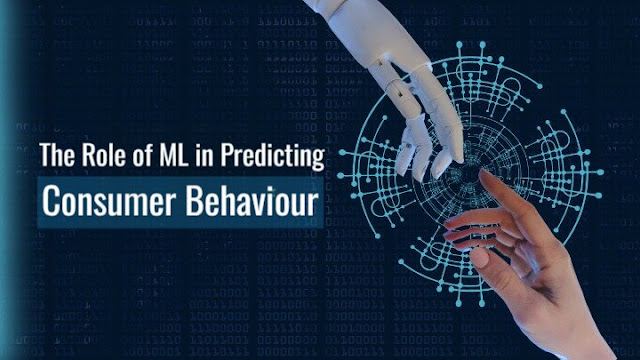The Role of Machine Learning in Predicting Consumer Behaviour
Hey there! If you’re fascinated by technology and dreaming of creating the next big mobile application, then you’ve come to the right place. Let’s dive into how machine learning is reshaping the way businesses predict consumer behaviour and why you should care about it. Spoiler alert: it might just revolutionize your app development journey!
Why Predicting Consumer Behaviour Matters
Have you ever wondered how companies know exactly what you
need before you even realize it? It’s not magic – it’s predictive analytics
powered by machine learning algorithms. Predicting consumer behaviour
helps businesses:
- Create
personalized marketing strategies.
- Improve
customer retention rates.
- Enhance
user experiences within apps.
As an app developer, understanding these trends can make
your applications more engaging and relevant to users.
How Machine Learning Powers Predictions
Machine learning thrives on data. Here’s how it works:
- Data
Collection: Apps and platforms gather consumer data such as
browsing habits, purchase history, and social interactions.
- Predictive Modelling: Using this data, predictive
analytics tools identify patterns and trends.
- Behavioural
Patterns: These patterns reveal what customers are likely to do next –
from what they’ll purchase to how they’ll interact with your app.
For example, machine learning algorithms can:
- Recommend
the next video to watch on a streaming platform.
- Suggest
products based on past purchases in e-commerce apps.
- Personalize
in-app experiences to boost engagement.
Benefits for Mobile App Developers
If you’re building mobile apps, integrating machine
learning for personalized marketing can give you an edge. Here are a few
ways it can help:
- Customer
Segmentation: Group users based on their behavioural patterns
and create tailored experiences for each segment.
- Retention
Strategies: Use predictive analytics to understand why users
might leave and proactively address their concerns.
- E-commerce
Customer Insights: For shopping apps, buying behaviour prediction
ensures users see products they’re more likely to purchase.
Real-Life Examples
Let’s look at some apps already leveraging machine
learning to predict consumer behaviour:
- Amazon:
Uses predictive modelling to recommend products, driving higher
sales.
- Spotify:
Analyses consumer data to suggest personalized playlists.
- Uber:
Predicts demand in specific areas and adjusts pricing accordingly.
If they can do it, so can you!
Get More Info: Mobile App Development Company | Native Mobile App Development Company | React Native App Development Company | Cross-platform Mobile App Development Company | Hybrid App Development Company | iPad App Development Company | Tablet App Development Company | Wearable App Development Company | Hardware Mobile App Development Company | Event Mobile App Development Company | iOS App Development Company | iOS Chat App Development Company | iOS Taxi App Development Company | On Demand iOS App Development Company | iOS Social App Development Company | iOS Ecommerce App Development Company | iOS Event App Development Company | iOS Startup App Development Company | iOS Real Estate App Development Company | iOS Education App Development Company | Original Source
FAQs
1. What is the role of predictive analytics in app
development?
Predictive analytics uses consumer data analysis to
identify user trends, helping you create apps that offer more personalized
experiences and higher engagement.
2. How can I implement machine learning in my mobile app?
Start by collecting relevant data, use machine learning
algorithms to process it, and build features like recommendations,
predictions, or automated responses into your app.
3. What’s the difference between consumer data analysis
and behavioural analytics?
- Consumer
data analysis focuses on analyzing raw data from users.
- Behavioural
analytics identifies patterns and trends in that data to predict
future actions.
Final Thoughts
Incorporating machine learning into your app can
transform how you predict and respond to consumer behaviour. Whether
it’s enhancing user engagement or driving sales, this technology offers endless
possibilities for app developers like us.



Comments
Post a Comment